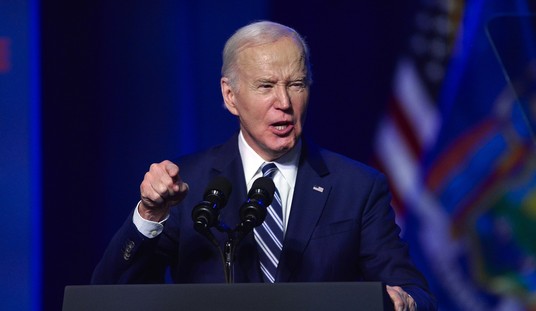Last week, only 63House Republicans had the gumption to vote against the Farm Bill, the latest in a series of policy victories for the left. Later today the Senate will be voting on cloture. If you plan to call your senators and voice opposition to the bill, here are some points to keep in mind:
Advertisement
- Cost: The last 5-year Farm Bill, which passed in 2008, was projected to cost $604 billion. The current bill is projected to cost $956 billion. Even factoring in inflation, this bill represents a 37% increase in spending. Yet, the politicians and D.C. reporters are dubbing this bill as a $16 billion cut because it falls just short of the arbitrary CBO baseline of $972 billion. That’s Washington budgeting for you!
- Food Stamps: Last year, House GOP leaders promised to separate food stamps from agriculture subsidies once and for all. Many conservatives were willing to vote for a Farm Bill that was divorced from food stamp spending, even without other conservative reforms. The rationale for this approach was that in the long term we would have more leverage to reform both sides of the bill without the powerful special interest alliance of “logrolling” between urban and rural pressure groups. This bill reinserts the $756 billion in food stamp spending, which ostensibly locks in Obama’s profligate baseline in perpetuity. Moreover, given the fact that this bill fails to structurally reform the program, the projected cost will likely grow as eligibility continues to expand.
- Growth of Agriculture subsidies: In a typical Washington bait-and-switch subterfuge, proponents of the bill are boasting about the elimination of $5 billion in direct subsidies while proposing new shallow loss and price target programs which will cost even more. The Agriculture Risk Coverage (ARC) program and the Supplementary Coverage Option (SCO) ostensibly guarantee 86% of a farmer’s income at historically high rates of revenue. The Price-Loss Coverage (PLC) program offers farmers subsidies when crop prices dip below arbitrary targets. Prices have already begun to fall below the peak, and as such, the subsidies will kick in earlier than the CBO originally anticipated when they scored the bill last year. Nobody is advocating that we eliminate all the subsidies overnight, but to increase the level of subsidization while farmers are enjoying a record $128.2 billion in income shows that Washington is completely out of touch.
- Lack of reforms: Pursuant to a silly 1949 act of Congress, every time we fail to renew expiring farm programs, the government must begin imposing Soviet-style price controls on milk by decreasing supplies through massive purchases of milk, butter, cheese, and other dairy products. Everyone agrees that this law is antiquated and harmful, and one would have expected it to be addressed in a long-term farm bill. But this law was not repealed, presumably, because they politicians want to use it as leverage next time conservatives hold up a Farm Bill and demand reforms. Likewise, this bill leaves the sugar subsidy program untouched. These subsidies drive up the cost of numerous food products.
- Biofuels subsidies: Instead of reducing government subsidies and interventions into the energy sector, this bill adds another $881 million in mandatory spending to subsidize the biofuels industry.
- The return of legislative logrolling: While this bill doesn’t technically contain earmarks, it has extraneous provisions that are designed to buy off votes for the subsidies. Senator Mitch McConnell (R-KY) slipped in a provision to allow a pilot program growing industrial hemp in Kentucky. Industrial hemp is a popular idea in Kentucky and should be addressed in a separate piece of legislation instead of being used to grease the skids for a trillion dollar bill. Additionally, this bill includes the reauthorization of the Department of Interior’s Payments in Lieu of Taxes (PILT) program. This is a popular program which reimburses western states for lost revenue due to federal ownership of much of their land. Again, this might be a meritorious program in a stand-alone bill, but should not be used to buy off Senators from western states in order to pass a budget-busting bill.
Advertisement













Join the conversation as a VIP Member